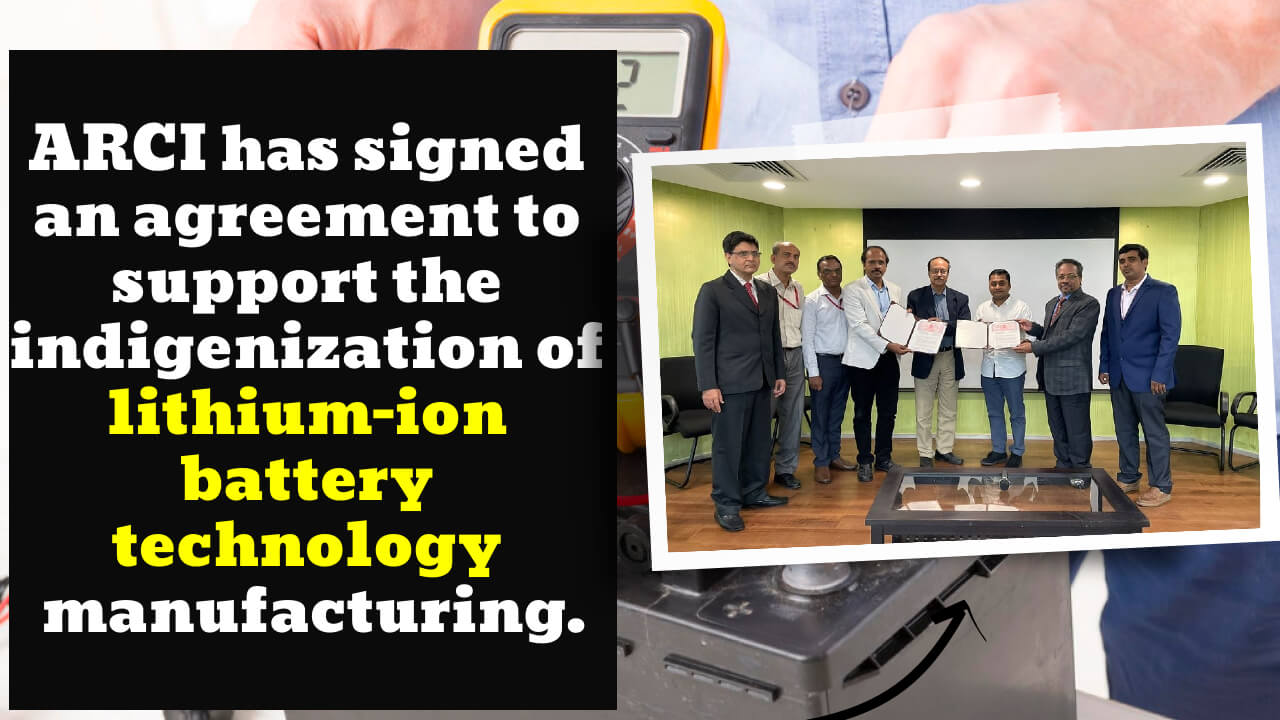Bangalore will soon have a battery-fabrication lab. The move will boost technology up-scaling and commercialization. Electric scooters and solar street lamps will serve as the basis for the transfer of know-how.
Key Highlight:
- Bangalore will soon have a battery-fabrication lab.
- The move will boost technology up-scaling and commercialization.
- Electric scooters and solar street lamps will serve as the basis for the transfer of know-how.
- “ARCI-Nsure” can serve as a model for how the country’s ecosystem can develop.
Bangalore will soon have a fabrication lab for Li-ion batteries to speed up up-scaling and commercialization of the technology.
When Nsure Reliable Power Solutions in Bengaluru signed an agreement on November 25, 2021, to transfer technical know-how and train personnel to establish a Li-ion battery fabrication lab, they did so as an autonomous R&D center of DST, Govt. of India.
Lithium-ion batteries have been successfully demonstrated in electric scooters and street lamps by the Centre for Automotive Energy Materials (ARCI), ARCI under the Technical Research Centre on Alternative Energy Materials and Systems following the ‘Atmanirbhar Bharat Abhiyan, or ‘Self-Reliant India Mission.
In a statement, Dr. Anil Kakodkar, ARCI’s Governing Council Chairman, said that the partnership between ARCI and Nsure Reliable Power Solutions is an important step toward addressing the challenges of climate change and carbon footprints. When it comes to moving technologies up the technological readiness levels (TRLs), he emphasized the necessity of indigenous technology development and the importance of collaboration between R&D labs and industry. He also emphasized the importance of a well-trained workforce, various ways to tap into complementary resources, and government support for technology upscaling and commercialization. “ARCI-Nsure” can serve as a model for how the country’s ecosystem can develop.
When Dr. G. Sundararajan, the former director of ARCI, said, “R&D labs like ARCI should look beyond lithium-ion battery technology and develop technologies involving other alternative energy materials.”
ARCI Director Dr. Tata Narasinga Rao explained that the cost of electrode materials contributes significantly to the overall cost of lithium-ion batteries (LiBs). Since India is heavily dependent on imports of these materials, it has become essential to develop indigenous technology and support industrial organizations in LIB technology.




